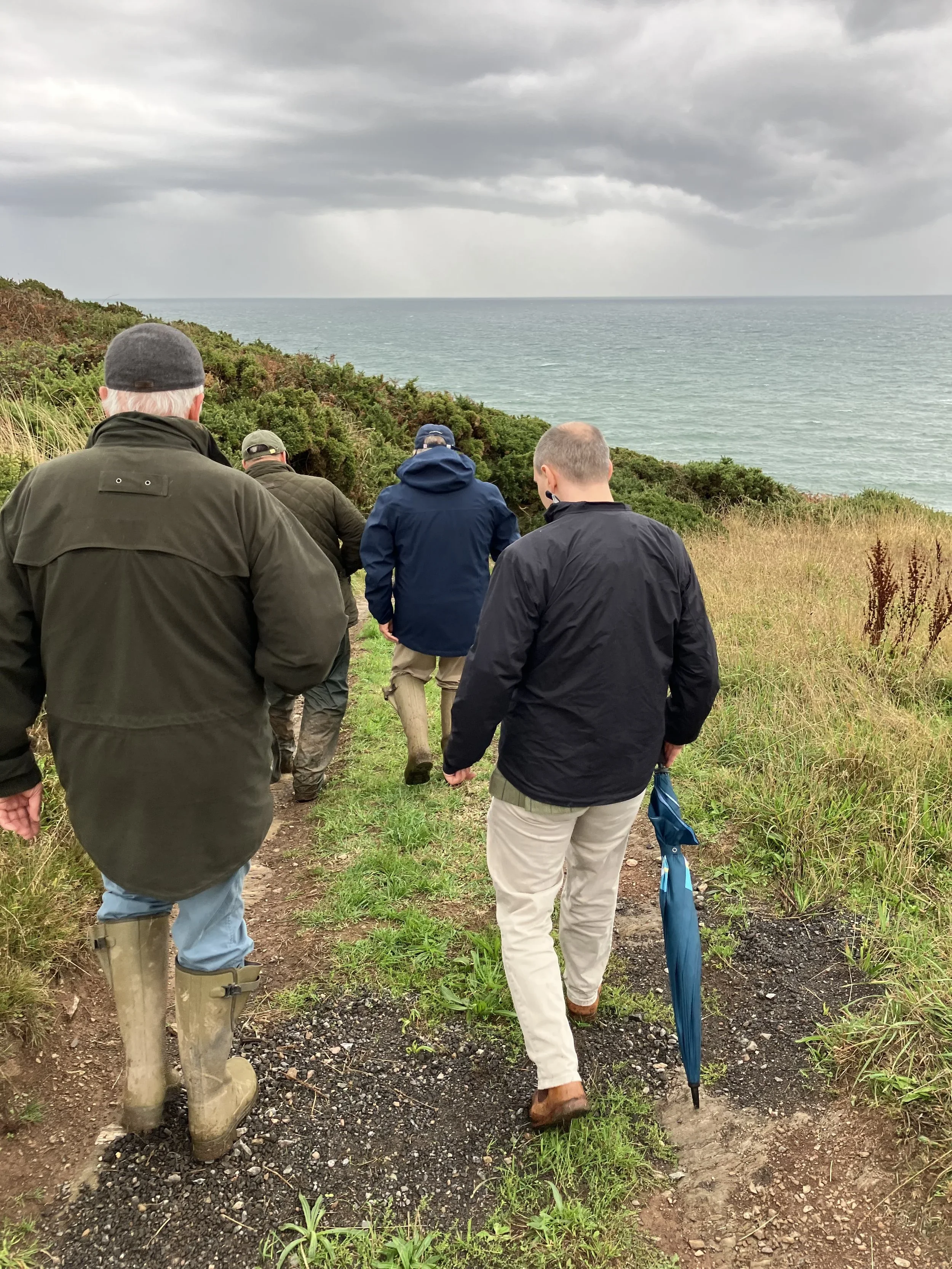Priorities for rural business after shake-up at DEFRA
Mary Alford (Outgoing CLA Devon Branch Chairman), Victoria Vyvyan (CLA President)
Priorities for rural business after shake-up at DEFRA
Assessing the priorities for the countryside and rural business in the months ahead, following the cabinet reshuffle and the establishment of a new team at the Department for Environment, Food and Rural Affairs (DEFRA), presents a range of challenges.
But one person always worth listening to on the subject is CLA President Victoria Vyvyan, who has spent the last six years as an officer of the rural business organisation and is approaching the end of her term as leader (November 2025).
Members of the CLA had an opportunity to hear her speak at the Devon AGM in September, hosted by Geoff and Zoe Sayers at Carswell Farm, Holbeton in South Devon.
Victoria made no secret of the importance of communication – both with Government and the public – as a tool to improve rural business.
Fresh from her first phone call with newly appointed Environment Secretary Emma Reynolds, Victoria said she was “cautiously positive” about future relationships with Government but urged a reset of the way farming and rural business sells itself.
Ms Reynolds, who won the seat of Wycombe in Buckinghamshire in 2024 and previously represented Wolverhampton North East from 2010 to 2019, was moved to the top job in DEFRA from a role as Economic Secretary to The Treasury.
Victoria reminded guests that Ms Reynolds had sided, before last year’s Budget, with opponents of the Chancellor’s decision to scrap inheritance tax relief for farms and family businesses.
But the CLA President warned: “I don’t want you all to get your hopes up that we are going to get those reliefs back - but I do think the Secretary of State will be in listening mode when we take our concerns to her.”
Victoria stressed rural businesses had to take responsibility for changing the narrative on farming and the countryside. “It’s important that we keep telling people not involved in forestry and agriculture of all the good things we are doing,” she said.
“We hear stories about hedgerows being taken out, yet 500,000 kilometres of hedgerows are managed and maintained by farmers and Estate managers every year. The negative story is always being told, and we have to tell the positive story.”
She said the fact that more than 60% of food consumed in Britain is produced in the UK was often presented as a shortcoming, yet it was a real achievement. “We should be getting a collective pat on the back for that – we should be lauded,” she said.
She warned there were challenges coming for rural businesses, however, with question marks over what the next round of payments under the Sustainable Farming Incentive (SFI) would look like, following the closure to new applicants of the scheme this year.
A significant number of environmental support schemes under Countryside Stewardship (CS) are also due to end in 2026 with so far little concrete information about what might replace them, leaving farmers and land managers unsure of how to proceed.
Victoria warned that what she called “the battle of the moors” around access and wild camping on Dartmoor had been a significant problem for some moorland landowners and pressure on rural access more widely was likely to be heading in landowners’ direction.
And she said while the current financial incentives for putting in trees were good, the situation was changing. “If you are going to go planting trees, now is the time to make an application,” she said. “The forestry team say it will never be this good again.”
The DEFRA team serving under Emma Reynolds now compromises Dame Angela Eagle the Minister for Food Security and Rural Affairs, Emma Hardy the Minister for Water and Flooding, and Mary Creagh, the Minister for Nature.
Steve Reed, former DEFRA Secretary, with whom the CLA had a good working relationship, despite a number of high-profile disagreements, has become Secretary of State for Housing, Communities and Local Government.
Victoria said: “We are hoping he will have taken with him, for the first time perhaps, an understanding of what’s needed in rural housing, which has been sadly lacking.”
After six years in senior officer roles at the CLA, Victoria said the most important message was to make sure farming and rural business was always on the front foot when it came to communication. “We should never allow ourselves to be presented as the villains,” she told members at the meeting. “We want to be the heroes in our own story.”


